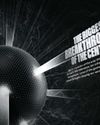
Positive thinking sometimes gets a bad reputation. Why? Well, because a lot of people think it is steeped in a denial of reality, and believe it can negatively impact our wellbeing as it does not allow us to process difficult emotions or feelings.
However, positive thinking is not about ignoring reality, but rather choosing to focus on potential solutions, being open to new ways of thinking, and finding something to be hopeful for. It can be a useful strategy for mentally and emotionally dealing with the many uncertainties and challenges of life. Our ability to look for the positives in a situation is known as 'cognitive reframing' and trains us to challenge and change our perspective of a scenario. And if you need any more encouragement to give it a go, a growing number of studies have found that positive thinking can benefit our physical health, as well as our mental health.
For example, researchers from Northwestern University in the US have discovered that people who have a positive attitude are less likely to experience memory decline as they get older. As part of a national study, the team monitored adults at certain points over a decade, each time surveying their mood in the previous 30 days, along with their memory recall. They concluded that having a positive attitude was associated with a less steep decline in memory.
Diese Geschichte stammt aus der October 2022-Ausgabe von BBC Science Focus.
Starten Sie Ihre 7-tägige kostenlose Testversion von Magzter GOLD, um auf Tausende kuratierte Premium-Storys sowie über 8.000 Zeitschriften und Zeitungen zuzugreifen.
Bereits Abonnent ? Anmelden
Diese Geschichte stammt aus der October 2022-Ausgabe von BBC Science Focus.
Starten Sie Ihre 7-tägige kostenlose Testversion von Magzter GOLD, um auf Tausende kuratierte Premium-Storys sowie über 8.000 Zeitschriften und Zeitungen zuzugreifen.
Bereits Abonnent? Anmelden

THE WORST IDEAS OF THE 21ST CENTURY
NOT ALL IDEAS CAN BE HITS. ALONGSIDE GROUND-BREAKING INNOVATIONS, 21ST-CENTURY SCIENTISTS HAVE HELMED THEIR SHARE OF WILD TECH FLOPS, DUBIOUS THEORIES AND OVERHYPED BREAKTHROUGHS. HERE ARE THE BIGGEST TO FORGET

10 IDEAS THAT WILL SHAPE YOUR NEXT 25 YEARS
Predicting the future is considered a fool's game. But it's one many of us like to play.

THE BIGGEST BREAKTHROUGHS OF THE CENTURY
We're a quarter of the way into the new century. To mark this milestone, we asked the UK's top minds to highlight some of the game-changing scientific breakthroughs shaping our world since the year 2000

DO THE SCIENCE COGNITIVE SHUFFLE
Trouble sleeping? A lot on your mind? Use this trick and sedate your synapses

WHAT DETERMINES HOW MANY ABS I CAN GET?
Assuming you're a human being, you have exactly the same number of abs as everybody else: two.

HOW CAN I IDENTIFY MY PSYCHOLOGICAL BLIND SPOT?
In the 1950s two American psychologists, Joseph Luft and Harrington Ingham, proposed a way of thinking about psychological blind spots - things you don't know about yourself - that they called the 'Johari Window' (the term is a combination of their first names).

How can I change my personality?
Want to become more confident, extroverted or assertive? Science shows that with a few simple changes, you can unlock your best self

Could your cosmetics be harming your health?
Cosmetic companies are phasing out microplastics and so-called 'forever chemicals' to help protect consumers.

extraterrestrial US Congress is talking about activity again. Is the truth really out there?
Despite several testimonies, the question remains frustratingly unanswered

Map of 100 million human body cells revealed
Over three dozen new studies mark significant milestone towards complete Human Cell Atlas